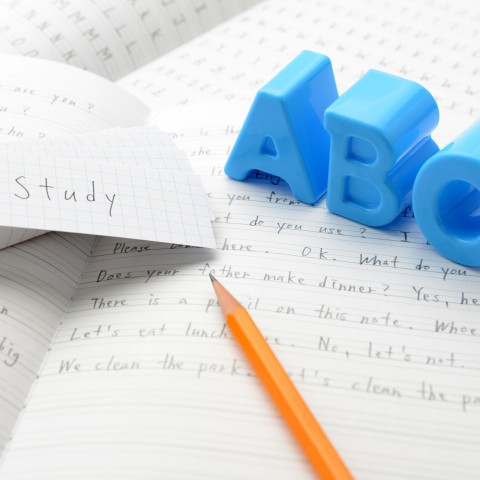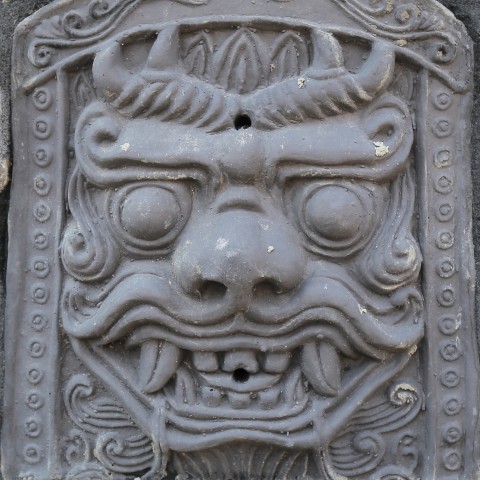
So, you’ve decided to learn Korean. That’s good!
But we’re sure there’s still that creeping question at the back of your mind: Is Korean hard to learn?
In this article, we’ll answer this question and provide you with examples of things that learners find difficult (and simple) about the language. By the time you’re done reading, you may just walk away with the realization that Korean is easier than you thought!
But first…
 Table of Contents
Table of Contents
- Why Should You Learn Korean?
- Is it Hard to Learn Korean?
- What are the Hardest and Easiest Parts of Learning Korean?
- Advice for New Korean-Learners
- Why is KoreanClass101 Great for Learning Korean?
1. Why Should You Learn Korean?
Korea is becoming more and more popular worldwide, largely due to K-pop influence. Many K-pop fans learn Korean so that they can read and understand the lyrics of their favorite songs and travel to Korea one day. In fact, learning Korean will open up many new doors; you’ll be able to meet more people and understand that there are many different ways of seeing the world.
Another advantage of being able to speak Korean is that you’ll have more opportunities to be hired by a global company. This is because more and more companies are seeking bilingual or multilingual professionals every year.
Another advantage? Being bilingual is actually good for your health because it keeps your brain sharp and delays the symptoms of memory loss.
2. Is it Hard to Learn Korean?
There’s no definitive answer to this question because so many different factors come into play.
For example, many Korean words are derived from Chinese characters. Therefore, if your native language also has words derived from Chinese characters, Korean vocabulary won’t be too difficult for you. And if your native language has a similar grammatical structure (like Japanese, for example), you’ll have an easier time learning Korean than people who speak very different languages. In short, any existing similarities between your native language and Korean will help immensely!
Remember that becoming fluent in Korean requires a good deal of effort and devotion from the learner. It may be difficult at the beginning, but once you have the basics down, Korean is easy! Mastering a new language takes time, but don’t worry. Many aspects of the Korean language are simple, so you can quickly master the beginner level.
3. What are the Hardest and Easiest Parts of Learning Korean?
So what makes Korean hard to learn? And what things do most learners find easy? Let’s find out:
1 – Memorizing the Korean Alphabet = Very Easy
New Korean-learners often start by memorizing the Korean alphabet, 한글 (Hangul), which is incredibly simple and easy to learn. A lot of Korean-learners report that each Korean letter is easy to memorize and that it takes about one or two hours to memorize them all.
Each character in Korean is made of two or three elements, usually as simple as a vowel and a consonant. Each consonant and vowel has its own sound that you need to learn by heart. Once you learn the Korean alphabet, you’ll need to learn how to combine the letters/sounds to make words.
For example:
- 가 (ga) is a combination of ㄱ(g) andㅏ(a).
- 헐 (heul) is a combination of ㅎ (h),ㅓ(eo), and ㄹ (l/r).
- 모 (mo) is a combination of ㅁ (m) and ㅗ (o).
- 괘 (gwe) is a combination of ㄱ (g), ㅗ (o), andㅐ(e).
- 학교 (hakgyo) is a combination of ㅎ(h),ㅏ(a),ㄱ (g),ㄱ (g), and ㅛ (yo).
- 핸드폰 (haendeupon) is a combination of ㅎ(h),ㅐ(ae),ㄴ (n), ㄷ (d), ㅡ (eu), ㅍ (p), ㅗ (o), and ㄴ (n).
As you can see, it’s not that difficult! Once you manage to memorize all of the Korean letters and sounds, you can easily start combining different consonants and vowels to create words.
You can download our Korean Hangul eBook for free and practice Korean words in our “Learn the Korean Alphabet, Hangul, from A to Z!” lesson. Feel free to check out the page and download the Hangul charts to practice your Korean spelling, too.
2 – The Power of the Verb 하다 (hada) = Easy
Many Korean verbs are just nouns connected to the verb 하다 (hada).
For example, the verb 공부하다 (gongbuhada) is made up of the noun 공부 (gongbu) and the verb 하다 (hada). The direct translation is “study doing,” and it literally means “I study.” You can do the same thing for taking a shower: 샤워하다 (syawohada) is the combination of the word “shower,” or 샤워 (syawo), and the verb 하다 (hada).
The verb form 하다 (hada) is used in writing, and the form changes in speaking. You can say 해 (hae) or 합니다 (hamnida) instead. For example, 공부해 (gongbuhae) means “I study” and is usually spoken among friends. On the other hand, 공부합니다 (gongbuhapnida) is formal language and is appropriate to use in a formal setting (such as in business).
Examples:
- 수영 (suyeong) or “swim” (noun) + 하다 (hada) or “to do” (verb) = 수영하다 (suyeonghada) or “to swim”
- 수영합니다 (suyeonghamnida) -> a formal way to say “(I) am swimming”
- 수영해 (suyeonghae) -> a casual way to say “(I) am swimming”
Can you see how easy it is to say a simple sentence? Have a look at our article “Korean Conjunctions List: Essential Korean Conjunctions” to learn more about grammatical structures. You can also check out some other pages on KoreanClass101.com:
- Basic Korean Grammar – Recommended for beginners who want to improve their Korean writing skills
- Intermediate Drama Series
- Idioms and Phrases

3 – Learning Vocabulary Takes Time = Difficult
If the language has so many simple elements, why is Korean considered hard to learn by so many people?
Well, many Korean words are borrowed from Chinese, which means that Korean pronunciation is also similar to that of Chinese. Have a look at these vocabulary words:
Did you notice anything? 학 (hak) means “education” or “learning,” and it appears in several words that are related to education. This concept is very similar to what happens in Chinese.
Let’s have a look at a different example:
- 교사 (gyosa) – “teacher”
- 교과서 (gyogwaseo) – “textbook”
- 교육장 (gyoyukjang) – “the superintendent of education”
- 교무실 (gyomusil) – “teacher’s room”
- 교인 (gyoin) – “believer”
As you may have noticed already, 교 (gyo) means “teaching,” and it appears in words that relate to teaching. 교 (gyo) is from the Chinese characters 敎.
Many compound Korean words are derived from Chinese, so if you know Chinese characters, it will be a lot easier for you to recognize these single-syllable words. If you don’t know Chinese, it’s okay. Once you start learning Korean, you’ll begin to notice these patterns naturally.
Here are some recommended pages for you:
- Learn how to count from 1-10 in Chinese-based numbers
- Hanja – Information about how Chinese characters are used in the Korean language
- Words borrowed from Chinese – You can see the list of Korean words that were borrowed from the Chinese language.

4. Advice for New Korean-Learners
The best way to improve your Korean is to surround yourself with native speakers. That’s why people sometimes go abroad and spend many years learning their target language.
The good news is that it’s not the only way. You can learn and become fluent in a language by simply dedicating your time and effort to doing so.
There are many resources on the internet that you can use to maximize your study time. We recommend reading various websites, blogs, or magazines in Korean or watching Korean videos on Netflix or YouTube.
Also, try to make friends with native Korean-speakers. One of the best ways to make friends and learn the language is by offering a language exchange. And this way, you’ll not only learn the Korean language, but also some interesting cultural insights.
Here are a few pages you can see for more useful information:
- Best Netflix Korean Dramas to Learn Korean – Watch famous K-dramas to improve your pronunciation and listening skills.
- Secret to Mastering Korean Slang and Abbreviations – Using slang is a great way to communicate with young Koreans over the internet.
- How to Read and Write Hangul – This page is for beginners who want to master Hangul.
- Absolute Beginner Korean for Every Day – Great page to improve your Korean vocabulary skills
- Afraid to Speak Korean? 7 Ways to Improve Your Speaking Skills – Speaking a new language can be scary, so we’ve provided seven ways to improve your speaking skills!
- Hangul – This is a Wikipedia page that explains Hangul in detail.

5. Why is KoreanClass101 Great for Learning Korean?
KoreanClass101 provides many free Korean study materials for Korean-learners at every level, so please check out our website!
You’ll be able to study at your own pace, and if you want to learn Korean from a native speaker, you can also upgrade your account for access to our MyTeacher program. New lessons and vocabulary lists are posted weekly, so you’ll be able to study new words every day! There are many things that you can do on our website for free, so don’t forget to sign up for KoreanClass101 today and enjoy learning the Korean language.
Do you think that Korean is difficult to learn? Let us know your thoughts in the comments below!










